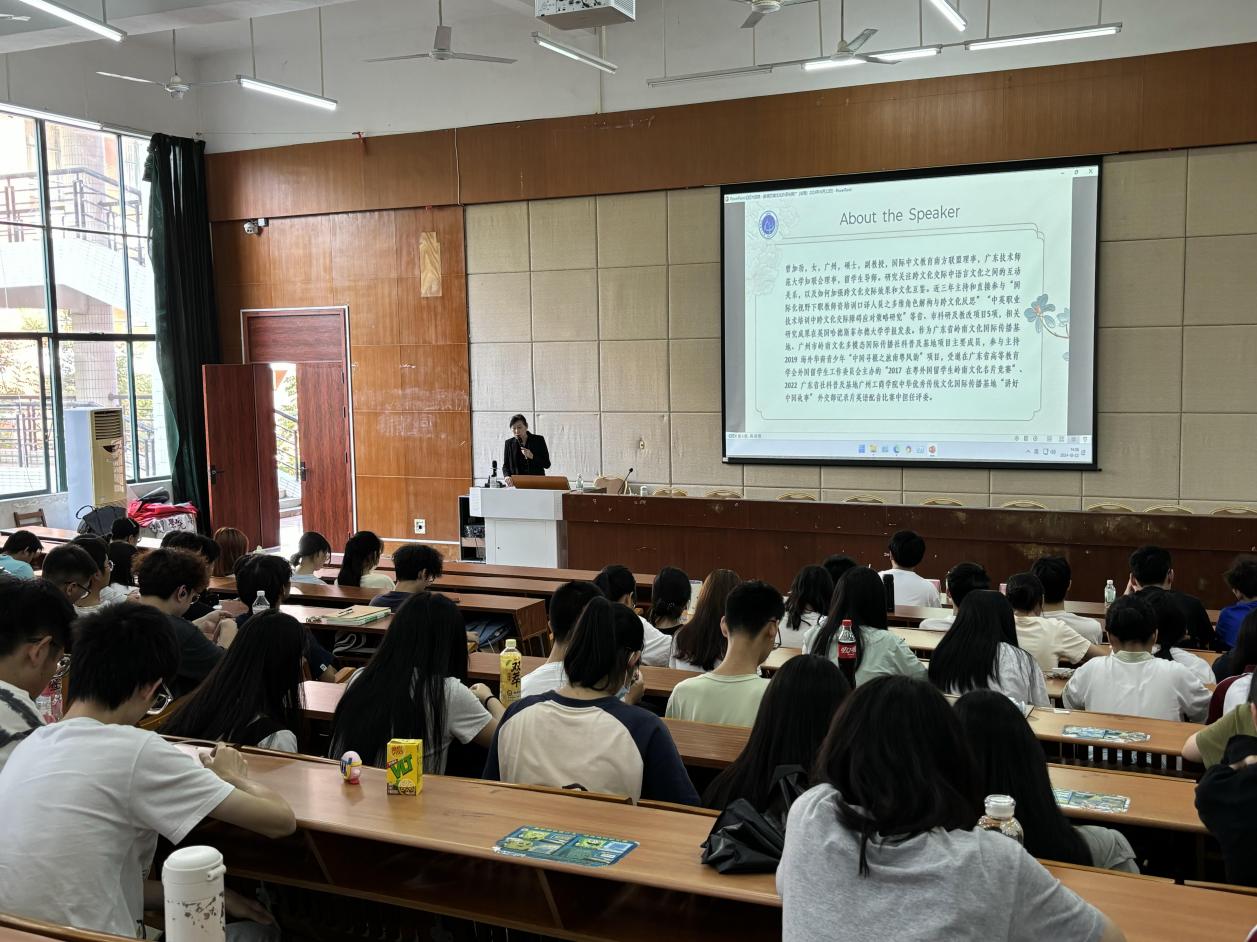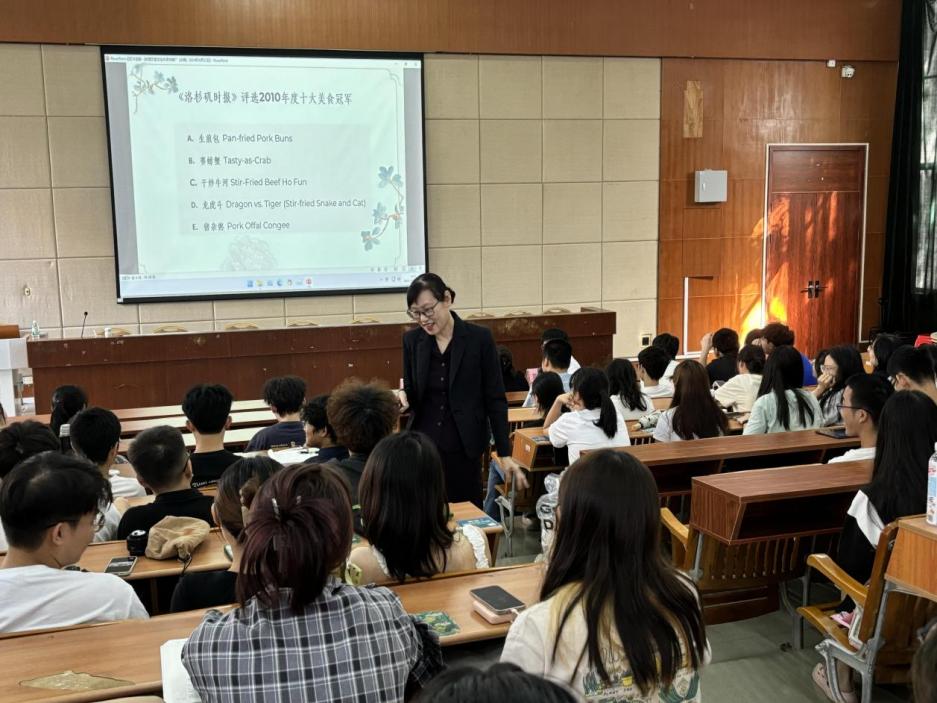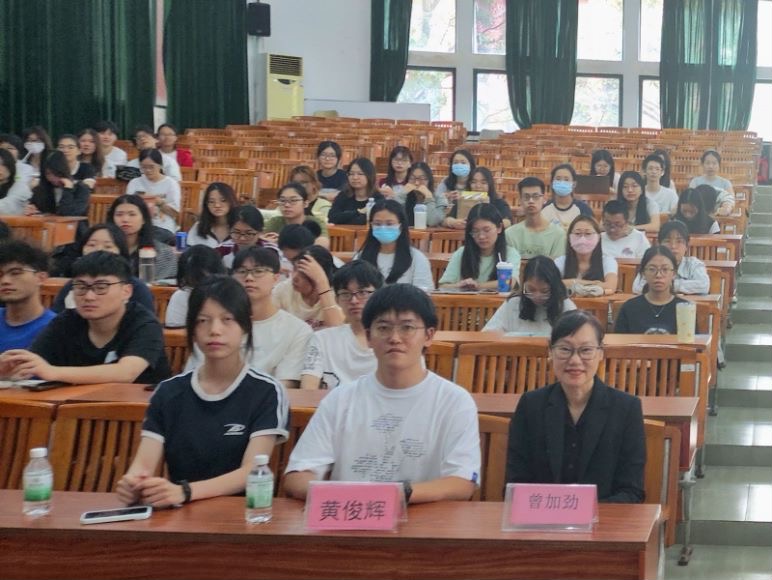To strengthen university students' cultural confidence and deepen their understanding of the cultural phenomena around them, especially the international influence of Lingnan culture, the International School of Guangzhou Huashang College hosted the 31st Cultural Quality Lecture on October 22, 2024. The lecture focused on the translation and dissemination of Lingnan cuisine culture, featuring Associate Professor Zeng Jiajin, a council member of the Southern Alliance for International Chinese Education and a member of the Guangdong Technical Normal University Alumni Association, as the keynote speaker. Over 100 students from the Teacher Education College, School of Health and Medicine, School of Communication and Media, and School of Foreign Languages attended the lecture, along with faculty members from the International School.

Initially, as a native of Lingnan, Associate Professor Zeng shared her extensive knowledge of Lingnan culture and provided insightful introductions to the characteristics of Cantonese cuisine. Through an engaging question-and-answer format, she prompted students to reflect on the translation of Cantonese dishes. She introduced many popular Lingnan snacks abroad, such as sweet and sour pork, dim sum, Cantonese roasted meats, wonton noodles, boiled chicken, custard buns, and Typhoon Shelter crab, explaining the English expressions for these dishes as well as the translation of cooking techniques.

Subsequently, Professor Zeng analyzed the challenges in translating Cantonese cuisine, such as the lack of standardized English names and mismatches between dish names and ingredients. She encouraged students to actively seek solutions to more accurately convey Cantonese culinary culture to the world in a way that resonates with foreign audiences. Using the phrase "No banquet in Guangdong is complete without boiled chicken" as an example, she interacted with students to discuss the translation effectiveness and invited them to try translating "boiled chicken" into English. The atmosphere was lively, with this interactive approach deepening students' understanding of the translation of Cantonese cuisine while also sparking their interest in exploring cultural exchanges between China and foreigncountries.
.

In the end, Professor Zeng engaged with the students, answering their questions regarding the translation of Lingnan cuisine culture, and encouraged them to actively participate in the international dissemination of Lingnan culture, sharing the stories of China and their local experiences with love and enthusiasm.

This lecture not only broadened students' understanding of the translation of Lingnan cuisine but also ignited their passion for promoting Lingnan culture. With the efforts of the students, the charm of Lingnan cuisine is expected to extend worldwide, contributing to cultural exchanges between China and other countries.